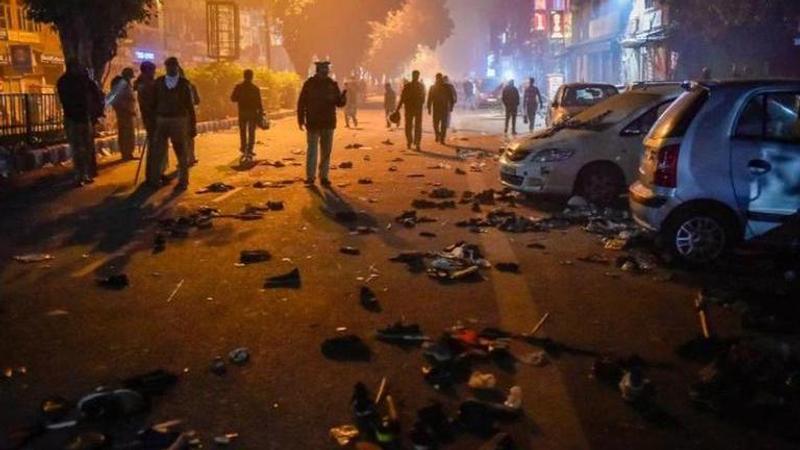Published 15:46 IST, December 23rd 2019
Daryaganj violence: Delhi court sends all 15 accused to 14 days judicial custody
The Tis Hazari court in Delhi on Monday dismissed bail plea filed by 15 accused in Daryaganj violence case and has sent all of them to 14 days judicial custody.

The Tis Hazari court in Delhi on Monday dismissed bail plea filed by 15 accused in Daryaganj violence case and has sent all of them to 14 days judicial custody. This comes after the court, earlier in the day had reserved the order in the bail petition moved by them. They were arrested after a protest in Daryaganj area against the Citizenship (Amendment) Act had turned violent last week. The police had also detained 40 persons for allegedly pelting stones at the police personnel during the protest.
Advocate Rebecca John, representing the accused, told the court that her clients are not required for the investigation as the police have themselves not sought for their remand but instead pleaded for the judicial custody. The court asked the Delhi Police's Investigation Officer (IO) on what basis the arrests were made, to which he said that the accused had pelted stone on Deputy Commissioner of Police's (DCP) office and scores were also injured due to the attack. The court had, on Saturday, remanded the accused to two-day judicial custody and were produced before the court today at the end of their remand period.
Anti-CAA protests continue
A number of anti-Citizenship Amendment Act (CAA) rallies are scheduled on Monday as the situation continues to remain tense across the country. While at least 18 people have died in Uttar Pradesh due to violence during protests, around a thousand have been arrested and many others booked. On Sunday, Prime Minister Narendra Modi tried to calm the situation by assuring that the CAA will not affect a single India citizen irrespective of religion. Despite PM Modi's message, however, protests continue across the country in full swing. The CAA grants citizenship to refugees from Hindu, Christian, Sikh, Buddhist and Parsi communities fleeing religious persecution from Pakistan, Afghanistan, and Bangladesh, who arrived in India until December 31, 2014.
(With ANI inputs)
Updated 16:21 IST, December 23rd 2019




